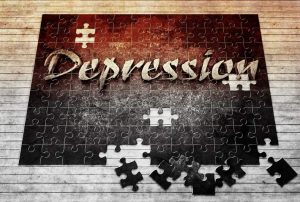
A comprehensive new analysis of past and current research found that 40 percent of adults with Autism Spectrum Disorder (ASD) are depressed or have been depressed at some point in their lifetime. Depression is the most frequent condition that coexists with ASD. Having ASD means you are four times more likely to experience depression than you would if you were an average adult in the U.S.
These are alarming statistics. Oddly, however, depression is not typically thought of as a common feature of Autism Spectrum Disorder in adults. A few minutes of reflection, however, makes the connection between the two apparent.
Why Do People With Autism Spectrum Disorder Become Depressed?
Throughout their lives, people with Autism Spectrum Disorder have struggled to connect with others. The difficulties they have following normal rules of conversations, adapting their own communication to match the needs of listeners, understanding what is not explicitly stated, and engaging appropriately both one-on-one and in groups makes socializing mentally exhausting and emotionally taxing.
Commonly, adults with Autism have a history of being ignored and exclude from social groups, a history that often begins with bullying, teasing, and ridicule dating back to early childhood. These negative attitudes are easily accepted and internalized, given the oversensitivity to negative emotions that are common with ASD, and over time become a principle way of thinking about oneself.
Furthermore, ASD lends itself to what is termed, “cognitive inflexibility” or the difficulty in switching from thinking about things in a certain way to thinking about them in a different way. Once the idea is established that one is socially inept and undesirable it seeps into the foundation of the person’s identity and becomes challenging to alter.
What Does Depression In Autism Spectrum Disorder Look Like?
From the outside, a person with Autism looks similar to anyone else who is depressed. Typically, the symptoms include irritability, low energy or fatigue, insomnia, poor concentration and difficulty making decisions, loss of interest in activities, and in extreme cases, talk of self-harm, even suicide.
Internally, the person typically feels a general sense of pessimism and hopelessness that he or she will feel better. Feelings of worthlessness or guilt are common, along with sadness, emptiness, discouragement, and negative ideas about one’s worth.
Depression in someone with ASD is quite similar to the way neurotypical people experience depression. The problem is in the way it is communicated to others. Because of the social and communicative differences of the person with ASD, the actual experience of being depressed and the internal stress and strain of coping with it is conveyed often in a way that is not apparent. People close to, or familiar with, the person may have no idea what is going on.
The Basic Problem of Depression In Autism Spectrum Disorder
Notwithstanding the uniqueness of depression in someone with Autism compared to neurotypical people, the core problem is the same for both. Depression is a problem of caring little for oneself. It appears in the form of persistent self-criticism, and constant efforts to demean and disparage one’s self as a person.
In the grip of depression, someone with ASD is preoccupied with thinking he or she is a bad person. Every minor fault is amplified and used in the effort to see only what is wrong, not right. Responsibility for everything that appears to be amiss is assigned to the person and no one else. It all one’s own mistakes exclusively. No one else is responsible. In effect, the depressed person is judge and jury, and the verdict is always the same…guilty as charged.
Can Depression in Autism Spectrum Disorder Be Cured?
The short answer is yes. Through effort and persistence, and help from others, depression can be either erased or alleviated. Only a desire not to change will keep someone in the grips of this most unfortunate of emotional conditions.
If you have Autism Spectrum Disorder or believe you do, think about consulting with a professional who has experience working with people on the autism spectrum. With guidance and support, your depression will likely recede into your memories of a former, and distant, past.
